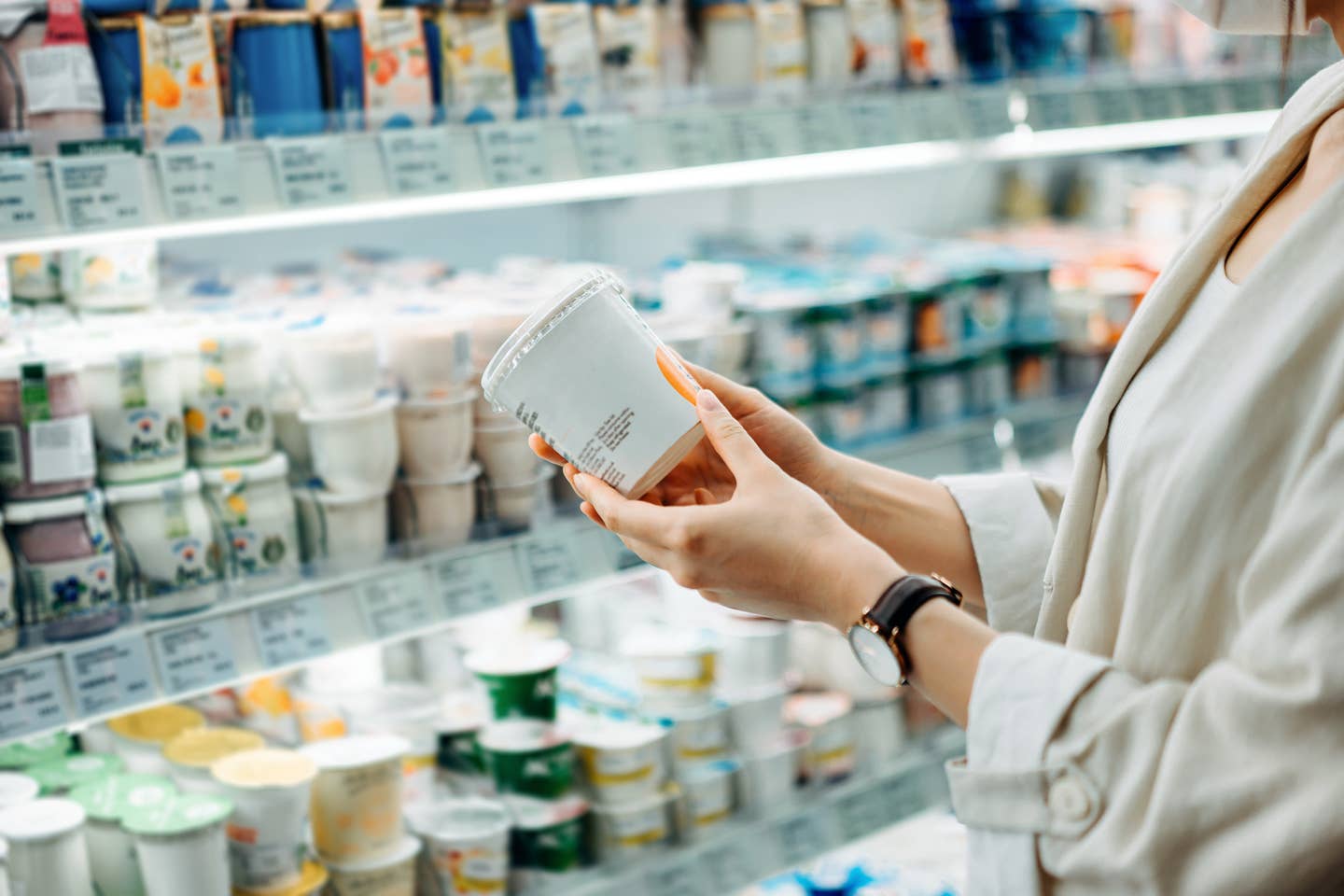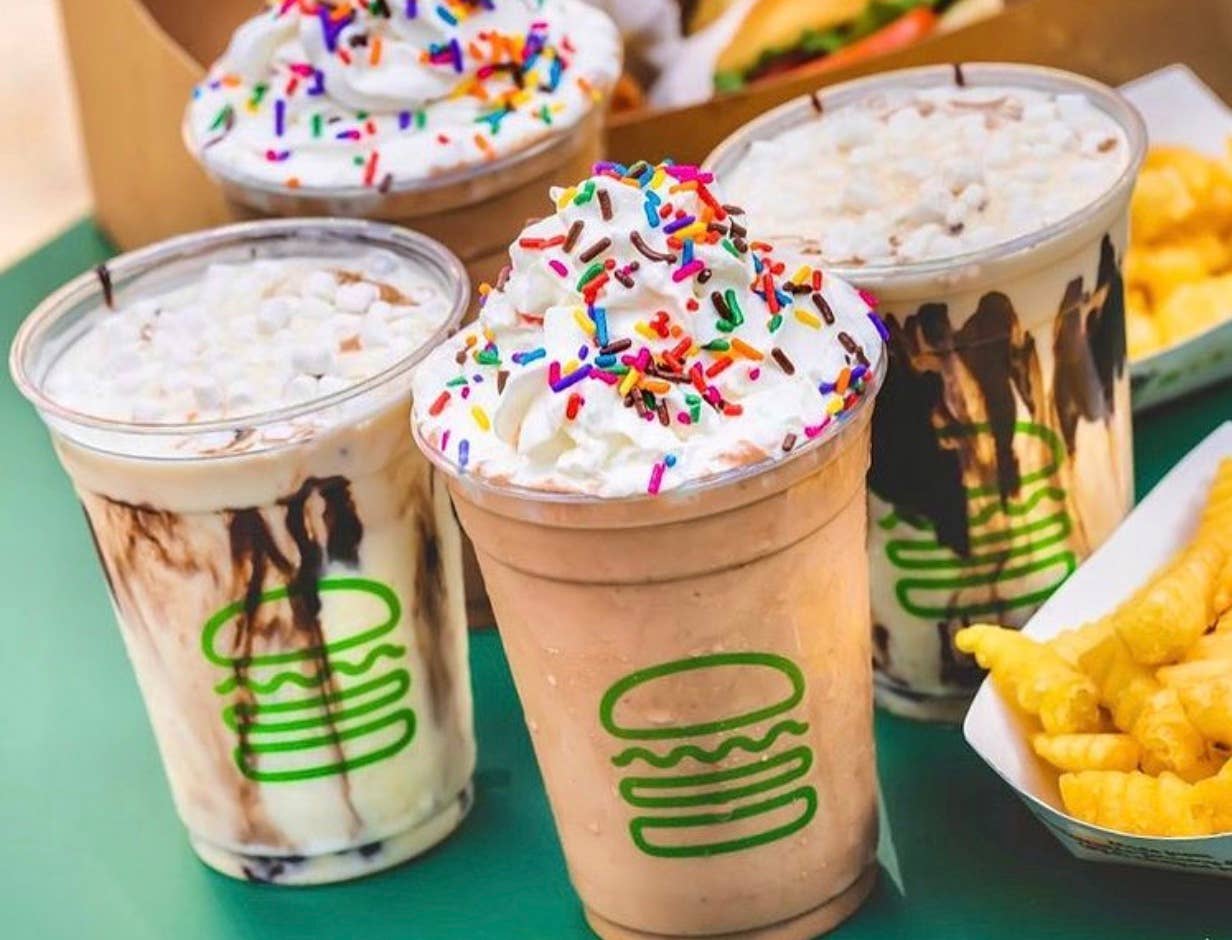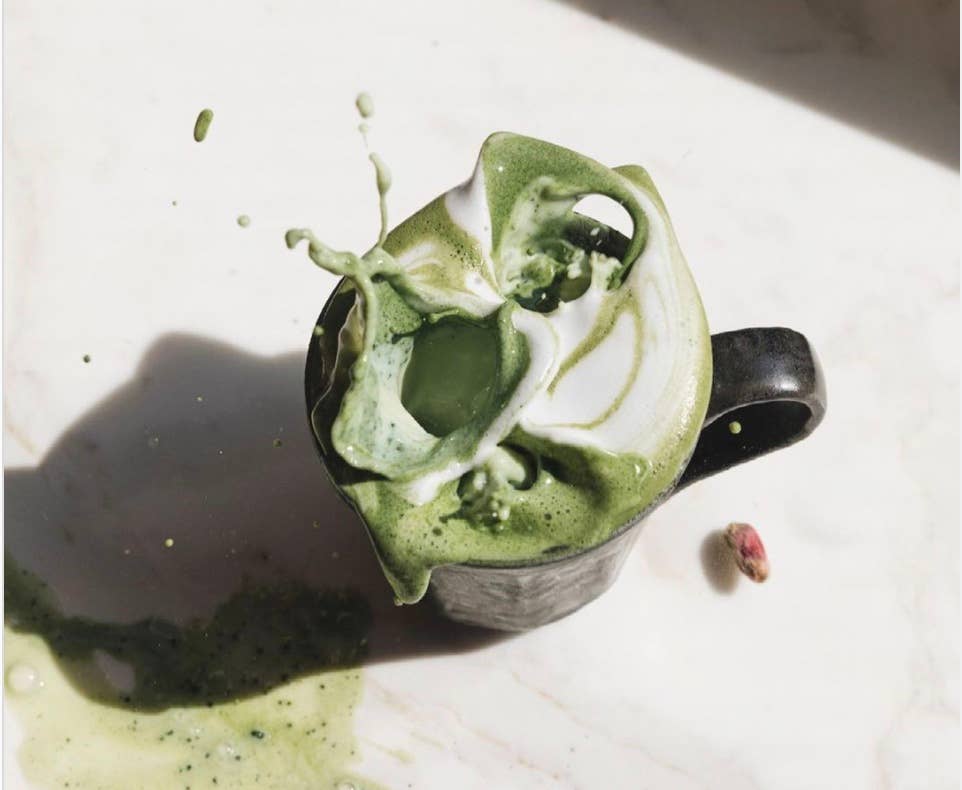
Should You Replace Dairy in Your Diet? Here’s What the Research Says
Two-thirds of Americans have tried non-dairy milk – or are fully switching to dairy-free alternatives – and last year, non-dairy products were the fastest-growing segment of the plant-based market, with $2.5 billion in sales in 2020. As more Americans are aiming to go dairy-free and edge their way toward eating plant-based, they are finding and trying more dairy substitutes than ever at the supermarket. So the question now is: What do they know that other consumers don't? Is it time to give up dairy?
As more companies are introducing dairy-free milk alternatives, it's easier than ever to ditch dairy and instead choose plant-based milks, non-dairy coffee creamers, coconut-milk yogurts, cashew-nut cheeses, and ice creams made of everything from coconut cream to almond milk. Americans are searching for and buying these dairy-free substitutes in record numbers, making plant-based dairy alternatives are the fastest-growing plant-based category, up 45 percent since 2019.
Why the big switch? Is dairy bad for you? It's been linked to increased risk of everything from acne to breast cancer, and new research is being published recently that links full-fat dairy consumption to chronic inflammation that drives up your lifetime risk for disease, including heart disease, cancers, and type 2 diabetes. So is it a good idea to give up cow's milk for the sake of your health, the planet, and animals?
Here's what the science tells us, and how easy it is to replace dairy with non-dairy foods, including cheese and coffee creamers, that are as tasty and satisfying as the real thing, and much less harmful. The latest plant-based milks even offer calcium, vitamin D, B12, and protein, without all of the saturated fat content. Here's what to know about how and why to replace dairy in your diet.
Your Dairy-Free Guide: Why and How to Replace Dairy in Your Diet
In recent years, big players in the dairy industry have responded to the growing demand for plant-based milk by pivoting away from cow's milk, such as Elmhurst, which decided to re-engineer its entire production line to only sell non-dairy plant-based milk products. Newer players like Oatly, Califia, and NadaMoo have made inroads into the dairy market by offering popular dairy-free options, joining long-time soymilk makers like Eden Foods and Organic Valley. it's the fastest-growing area of the food category, showing no signs of slowing down.
When the dairy board fought back with billboards that said: “Nut Milk is Not Milk” it became clear that demand had reached a level threatening to the dairy industry – as if Borden going out of business was not signal enough that times are changing and so are consumer preferences.
For decades, the dairy industry has perpetuated the myth that milk builds strong bones, and that “Got Milk” drove home the message that milk from a cow is an essential household necessity. Now the latest research tells us the opposite is true, as an expanding library of published peer-reviewed studies are revealing that full-fat dairy from cows presents more health dangers than benefits, and full-fat dairy has been linked to breast cancer, prostate cancer, and cardiovascular diseases such as hardening of the arteries, and blockages that can lead to stroke and heart attacks.
There’s never been a more opportune time to switch. The market is literally flooded with alternatives that taste the same as traditional milk without all the saturated fat and hormones that cow's milk carries. Considering the health profile of plant-based milk, its relative sustainability for the planet (factory farming is one of the biggest contributors to greenhouse gases of any industry), and the vast choice of products now on the market, giving up dairy can be simple. Here are the top five reasons to drop dairy and some easy tips for achieving a dairy-free diet.
Why Dairy is Bad For You & The Planet
Dairy has been linked to acne
Whether it's due to stress, hormones, or dietary choices, adult-onset acne can be one of the most infuriating dermatological issues to struggle with. For those who suffer from breakouts, it is important to consider how acne may be linked to your diet. Several studies have linked breakouts to dairy intake, including a report from the Clinical Nutrition Journal that discovered a relationship between dairy and acne breakouts across all ages. Consumption of whey protein has been shown to cause skin inflammation which can block pores and create breakouts. By cutting dairy from your diet, it is possible to reduce breakouts that have not responded to taking prescription drugs or topical medications.
“In some cases, although they haven’t responded to acne medications, their skin improves when they stop taking whey protein,” according to Rajani Katta, M.D, dermatologist and author of Glow: The Dermatologist’s Guide to a Whole Foods Younger Skin Diet.
Leading dermatologists and researchers have reported on research that showed acne is tied to both dairy and sugar consumption, and dairy specifically appears to be a primary contributor to both the severity and frequency of outbreaks. Whether you're dealing with acne or eczema, a diet that is heavy on dairy can be harmful to your skin's health. By cutting dairy consumption, sufferers have been able to combat stress- or hormone-related outbreaks.
“Dairy increases the occurrence and severity of acne and eczema,” says Trista Best, a Registered Dietitian at Balance One Supplements. “Dairy leads to an overproduction of mucus in the body, which results in a greater amount of oil on the skin, primarily the face.”
Dairy causes inflammation, slowing recovery time for athletes
Athletes have found that dairy causes inflammation that in turn elongates their recovery times. Research indicates that dairy has been linked to inflammation, which slows muscle recovery time and prevents lactose buildup from clearing, leaving you sore and fatigued longer. So athletes worried about recovery times or injury prevention and repair should stay away from dairy for performance purposes. It's not only those who are lactose intolerant for dairy to cause bloating, digestive issues, and general inflammation since it can happen at a cellular level.
Athletes – or anyone involved in physical activity – should consider ditching dairy to avoid performance-related inflammation or pain from sports injuries. The sugars in lactose have been proven to lead to higher levels of inflammation that affect muscle and joint repair time.
The inflammation from dairy consumption can linger during the days and weeks following intense activity. Inflammation constricts blood flow, meaning that muscles and joints take longer to recover and repair. Delayed recovery can be dangerous for any level of athletes, weekend warriors, and pros alike, putting excess strain on already damaged muscles.
“Dairy is an inflammatory food, and athletes are constantly fighting inflammation to repair broken-down muscles and get back to training,” explains Olympic cyclist and medalist Dotsie Bausch who noticed her recovery times shortened when she abandoned dairy. “If you’re inflamed, you’re not at your best, and until you ditch dairy, you don’t know your true limit.”
Dairy consumption has been linked to higher BMI
Recent studies have linked dairy consumption to increased BMI and one study linked habitual dairy consumption to higher levels of obesity. Specifically, several studies have linked lactose and dairy product as a factor in higher BMI.
"Dairy has been linked to several preventable conditions," Dr. Giuseppe Aragona, MD, at Prescription Doctor explains. "Cows milk, especially whole fat milk, contains trans and saturated fats, which have been linked to heart disease and obesity. Over time, if you drink milk a lot, it can clog arteries and lead to these complications."
Dairy raises your heart disease risk
Study after study has linked saturated fat in animal products such as meat and dairy to higher levels of LDL (or bad) cholesterol in the body, which can lead to blockages in the arteries, drive up blood pressure, leading to increased risk of cardiovascular disease, strokes, and heart attacks. Doctors have warned patients at risk for heart disease, or who already have it, that they should avoid all saturated fat in their diet, which amounts to giving up red meat and dairy, especially creamy cheese.
Since 48 percent of Americans currently have been diagnosed with some form of heart disease and the rest of us probably have it and don't know it yet, the best course of action is to simply stay away from dairy and red meat. A reduction in intake of saturated fat has been linked to a lower risk of heart disease by 21 percent, a large drop, according to doctors. The latest study, released this year, looked at data from 59,000 study participants and when they were educated to reduce sat fat in their diets, they lowered their heart disease risk significantly and the results appeared linked to both lowering the saturated fat and replacing them with healthier fats, from nuts, seeds and cooking oils that are plant-based and heart healthier.
Dairy is linked to certain types of cancer
For decades, the dairy industry has been under fire for its direct link to increased levels of certain cancers, especially hormonally linked cancers such as breast and prostate. Several experts have warned that the level of estrogen found in milk products could increase this risk, since lactating cows are given estrogen to keep up milk production.
One study found that men who drank two or more glasses of milk a day had a 60 percent increased risk of advanced prostate cancer. The direct link between cancer cells and dairy products cannot be ignored and can act as a key motivator to quitting dairy or at the very least, beginning to reduce dairy consumption.
A study from the International Journal of Epidemiology concluded that women who drank as little as two glasses of conventional cow's milk increased their risk of breast cancer significantly. This risk could be avoided and also reversed by choosing plant-based alternatives and dieting, the study found.
“Consuming as little as one-quarter to one-third cup of dairy milk per day was associated with an increased risk of breast cancer of 30 percent,” lead researcher Gary E. Fraser, Ph.D., of Loma Linda University explained. “By drinking up to one cup per day, the associated risk went up to 50 percent, and for those drinking two to three cups per day, the risk increased further to 70 to 80 percent.”
Cancer expert and dietician at the Physicians Committee for Responsible Medicine, Lee Crosby, explains that a diet with high amounts of full-fat dairy presents more risk because of the saturated fat content in the animal products. The saturated fat content, the sugars in lactose, and the higher level of hormones can a serious concern regarding the development of cancer cells within the body. This can be avoided by adopting plant-based alternatives to traditional dairy products. Fiber and even soy products have been shown to be protective against breast cancer, she adds.
Dairy's impact on the environment
Beyond its health risks, dairy production presents a significant danger to the environment. The methodology of factor farming used in American today has been shown to contribute to the worsening climate crisis and global warming. This became extremely apparent earlier this year with the UN's IPCC released a "code red" statement that warned about the meat and dairy industry's dangerous impacts on the environment.
The plant-based milk industry is making strides to produce milk alternatives that are better for planetary health. Even while some plant-based milk, such as almond milk requires vast amounts of water to produce, a recent study found that a serving of dairy milk is responsible for nearly three times more greenhouse gas emissions than a serving of non-dairy milk.
The mounting environmental concerns have become a key motivator for consumers to abandon animal products. A study from food and beverage company Mattson found that the number of consumers making decisions about food choices for the sake of the environment has increased from 17 percent in 2018 to 48 percent in 2020.
In the wake of environmental disasters such as raging wildfires and droughts in the western United States, floods in Europe, and the ongoing COVID-19 epidemic, making food choices that are more sustainable and healthy is at the forefront of the conversation. Plant-based eating significantly reduces your personal carbon footprint. Cutting dairy consumption is directly linked to reducing methane emissions.
The USDA released a report that found that methane comprises 36 percent of greenhouse gases produced in the entire agriculture industry. By reducing methane emissions linked to raising cows and other livestock, consumers can personally combat climate change and lower their individual contribution to the intensifying climate crisis.
“The number one reason to quit dairy is to save the environment as intensive livestock farming is simply not a sustainable practice as evidenced in the movie Cowspiracy," Dr. Lina Velikova, MD, Ph.D., medical advisor at Supplements101 said. "Greenhouse emissions from operations that produce dairy and red meat account for almost a third of all carbon pollution on the planet."
How to Go Dairy Free
You can get nutrients from plant-based sources
The most daunting thought when removing dairy from your diet is the question of whether you will get enough calcium. Traditionally, dairy milk is championed as the single source of calcium in the American diet, but your bone health will be protected by eating calcium-rich fruits and vegetables.
"With careful planning, attention, and [possibly] supplementation, you can absolutely meet your calcium needs on a strict vegan or vegetarian diet,” according to Maya Feller, RD. “You can actually meet your needs if you have a balanced diet that is close to the dietary guidelines.”
If you are concerned about calcium consumption, simply eat more of the top 10 calcium-rich foods that are plant-based and heart-healthy, such as almonds and protein alternatives such as tofu and tempeh, which all contain a significant amount of calcium. Leafy greens such as kale, collards, bok choy, and turnip greens are all high in calcium.
5 Easy Steps to Replace Dairy
- There's never been so many non-dairy milks or creamers to choose from. Although it may feel daunting at first to find a replacement, plant-based milk companies are releasing new variations nearly every week. From popular substitutes like Oatly to upcoming creamers like Ripple, and classics like Elmhurst, there are plenty of options in the refrigerator case. Check out The Beet's top non-dairy creamers.
- Try one of the many new plant-based cheeses. Over recent years, several companies such as Violife, Daiya, Follow Your Heart, Chao, Treeline and more have developed plant-based cheeses that taste and melt better than ever before. Here is The Beet's list of the top shredded cheeses on the market.
- Add extra protein to your diet with legumes, nuts, and seeds. Many consumers fear that without milk, they are robbing themselves of certain nutrients, especially protein. But by removing dairy from your diet you likely are getting enough protein from all the other foods you eat. Many plant-based milk products are protein-rich, and there are great sources of protein on a plant-based diet, from tofu to legumes to nuts and seeds, so you never have to feel cheated.
- Check the labels. One of the hardest obstacles to overcome when cutting out dairy is making sure that it doesn't sneak into other products. Many products use minimal dairy so it is important to check the ingredient or the listed allergens to avoid dairy the next time you visit the grocery store.
- Try new Recipes. There is no better way to understand how easy it is to reduce dairy than actually trying to. Add dairy-free milk to a recipe that you love or experiment with plant-based cheeses. Or even try to make your very own cashew or coconut-based dairy substitutes at home.
Here Are Some Dairy-Free Recipes to Get Started
Dairy-Free Snacks
Dairy- Free Breakfast
- Dairy-Free Triple Berry Baked Oats
- French Toast Topped with Coconut Whip and Fresh Berries
- Berry Compote and Orange Mango Cashew Cream for Savory Treats
Dairy-Free Lunch
- Dairy-Free Cheese Sauce with Nutritional Yeast Recipe
- Vegan Ranch Macaroni Salad
- Homemade Vegan Pumpkin Ricotta Tortelloni
Dairy-Free Dinner
Dairy-Free Dessert
Choosing the healthiest, best plant-based milks, creamers, pizzas, and more
When it comes time to choose the right non-dairy products for you, check out The Beet Meters where we rate and recommend products based on 10 health criteria and 10 part taste attributes, so that you can find the one that fits your lifestyle and taste preferences best.
For more products and recommendations check out all the Beet Meters here.






